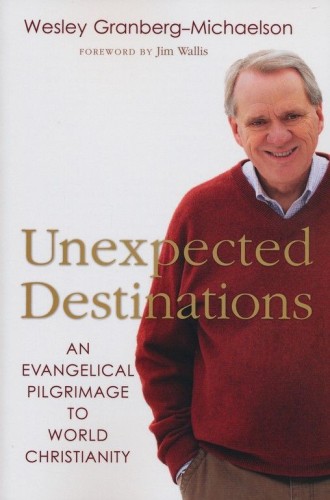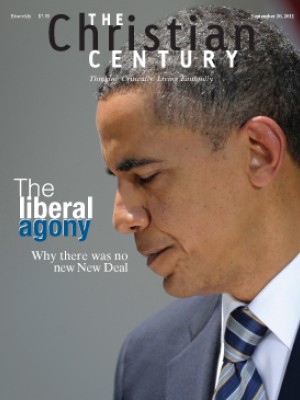Unexpected Destinations, by Wesley Granberg-Michaelson
What do you get when you take an attractive, intelligent kid born into a loving, happy, Midwestern family and relinquish him for baptism, telling him he is now "engaged to profess Christ"? Wesley Granberg-Michaelson, that's who.
This is a wonderfully well-written autobiography by one of the notable leaders of the contemporary American church. If you are a Protestant Christian over 50, there is a good chance that you will see marks of your own pilgrimage in the steps of Granberg-Michaelson.
His journey began in a well-formed, evangelical Reformed church and in the fledgling Young Life movement (he was a conservative compatriot with our present secretary of state back when she was a young evangelical). He was probably the only person to attend Hope College as an act of rebellion. He went to Princeton Seminary and then became the youngest member of Senator Mark Hatfield's staff. He was mentored by Gordon Cosby, was present for the earliest days of Sojourners, then became a pastor and general secretary of the Reformed Church in America. Granberg-Michaelson has landed in some outstanding locations.
Read our latest issue or browse back issues.
The World Council of Churches and Christian Churches Together are some of the global Christian organizations in which he has endured hours of meetings and moderated fractious debates, all because of his conviction that the life he was living was not his own. In this book he embodies the Reformed tradition at its best.
Remarkably, though Granberg-Michaelson knows firsthand the underbelly of the worldwide church, has met and worked with just about everybody who is anybody in Protestant Christianity and has made the tough, day-to-day decisions required of a church executive, he comes through as a warm, vibrant, generous, deeply pious and likable Christian.
As he narrates his life in church, Granberg-Michaelson has some remarkably wise, candid commentary on Christian communitarian ventures (and why they so often fail), on planting new churches (he refuses to pit church growth against social justice commitment) and on the Christian life as a complementarily inward and outward journey. His reflection on global ecclesiastical life challenges both mainline liberal stereotypes of evangelicals and evangelical prejudices about supposedly Jesus-forsaking social activists.
What a joy to read the story of a life commandeered by a God who is not only demanding but also loving, not only righteous but also gracious—the autobiography of someone who has devoted his life to church leadership and who, looking back, would gladly do it all over again.







